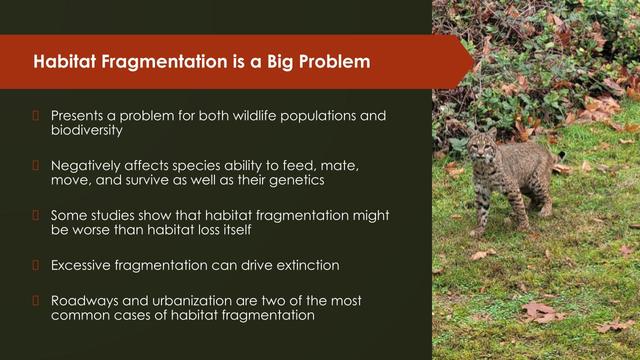Skip to main content
table of contents
Habit Fragmentation Via Roads in King County
Brandy Eckman, Environmental Studies, UWB
A visual, map-based look at how roads create habitat fragmentation and endanger both wildlife and humans. It looks at data both from King County and, in comparison, data from the Department of Fish and Wildlife, with a comparison of the potential and known habitats between the two maps. With habitat fragmentation possibly affecting wildlife even more than habitat destruction, these maps provide a look not only at the problem but also at potential solutions.
